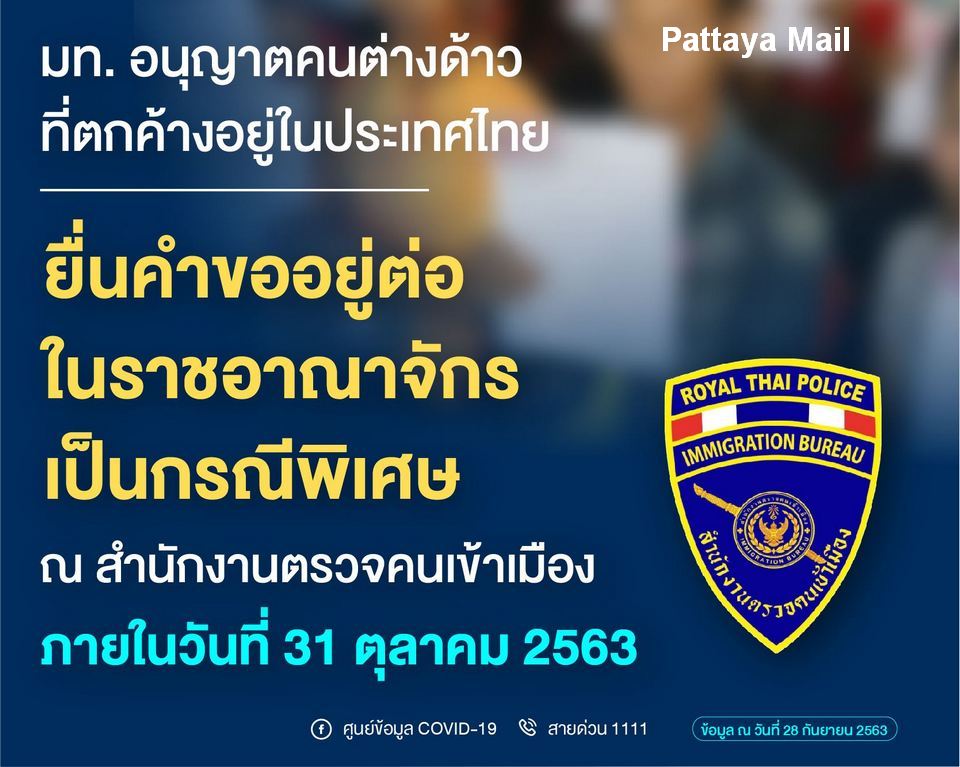
The Thai immigration authorities have confirmed that the visa amnesty, scheduled to finish on September 26, has been extended to October 31. This means that anyone whose visa or permission to stay expired from March 26 onwards – excluding one year renewals such as retirement which were never subject to amnesty – will not face overstay penalties until the new terminal date has passed. Those whose permission ran out before March 26 could not benefit from amnesty and, if still here, now face serious overstay problems when discovered.
The amnesty news has been greeted with a combination of relief and anger in equal measure. Many temporary visitors had not succeeded in obtaining the requisite paperwork for a further extension, often claiming that their embassy had refused or delayed a letter seeking more time from the immigration bureau. They are breathing a big sigh of relief that they will not now be subject to overstay penalties for about another five weeks at least. There are thought to be at least 50,000 people in this situation.
But some visa holders who did succeed in obtaining an extension by showing paperwork prior to the latest announcement are angry that they unnecessarily paid a fee. The amount varied from a cheap 1,900 baht (for a further 30 days) based on an embassy letter or proof of serious illness from a hospital, but a much bigger price for a three months’ extension reputedly arranged by some visa agents. Obviously the latter can’t get their money back although they are now safe until just before Christmas. The sums are said to vary between 20,000 and 70,000 baht, dependent on the agent involved.
There are several reasons for the last minute change of heart by immigration authorities and by the government. Although there are now more long distance flights from Thailand than previously, cancellations and diversions still persist on a grand scale. Some destinations, for example parts of Europe, South America and the African continent, are still virtually impossible to reach. Many older travellers had pleaded with immigration officers not to force them out as they faced journeys of up to 48 hours or longer, with long waits at intermediate airports, and were fearful of exhaustion and other health problems in such a dismal scenario.
Other foreigners, often with passports from the UK, mainland Europe, Australia and the United States, have long-stay visas in neighboring countries such as Cambodia, Myanmar, Laos and Malaysia but are unable to return by air because of strict Covid-19 immigration policies. Also, these countries all have closed borders with Thailand making a land crossing impossible. Many of these foreign nationals had stated that certain Bangkok embassies had declined to issue them with a letter of support even though no flights could accommodate them. It is the unpredictability of foreign embassies in issuing letters to their nationals that lies at the heart of why an amnesty extension to the end of October has now been conceded.
The immigration bureau has asked that short-term amnesty beneficiaries who think they may need to stay beyond the new terminal date of October 31 contact them without delay at the beginning of the month. This is believed necessary to enable the authorities to make an informed decision about the size of any recurring problems which may persist during November and December. The pesky virus certainly knows to create pandemonium in the visa world.




